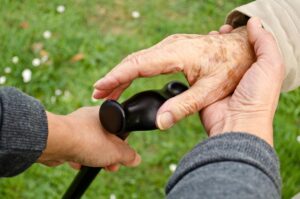
Movement disorders can be life-altering, affecting your ability to perform everyday tasks and diminishing your quality of life. These disorders, which include conditions such as Parkinson’s disease, dystonia, and essential tremor, can make even the simplest movements challenging. However, there is hope and help available through physical therapy. At Florida Movement Disorder Therapy Centers (FLMTC), we specialize in helping individuals regain their mobility, independence, and confidence.
Understanding Movement Disorders
Movement disorders are neurological conditions that cause abnormal voluntary or involuntary movements. These can range from tremors and jerks to difficulty initiating movement or muscle stiffness. Common movement disorders include:
- Parkinson’s Disease: Characterized by tremors, stiffness, and bradykinesia (slowness of movement).
- Dystonia: Causes involuntary muscle contractions, resulting in repetitive movements or abnormal postures.
- Essential Tremor: A neurological disorder that causes rhythmic shaking, usually in the hands.
These conditions can severely impact one’s daily life, making activities like walking, writing, or even speaking difficult. This is where physical therapy plays a crucial role.
The Power of Physical Therapy
Physical therapy is a cornerstone in the management of movement disorders. It involves exercises and interventions designed to improve mobility, strength, balance, and overall function. Here’s how physical therapy can help:
1. Improving Mobility and Flexibility
Movement disorders often lead to muscle stiffness and decreased flexibility. Physical therapists use stretching exercises and manual therapy techniques to improve joint mobility and muscle flexibility, making everyday movements easier and less painful.
2. Enhancing Strength and Endurance
Weakness and fatigue are common issues in many movement disorders. A tailored exercise program can help build muscle strength and increase endurance, enabling individuals to perform daily activities with greater ease and less fatigue.
3. Restoring Balance and Coordination
Balance issues are a significant concern, especially in conditions like Parkinson’s disease. Physical therapists at FLMTC employ balance training exercises to reduce the risk of falls and improve coordination, enhancing overall stability.
4. Promoting Independence
One of the primary goals of physical therapy is to help individuals regain their independence. Through personalized treatment plans, physical therapists teach patients how to manage their symptoms and perform tasks safely and effectively, allowing them to live more independently.
Why Choose Florida Movement Disorder Therapy Centers (FLMTC)?
At FLMTC, we are dedicated to providing specialized care for individuals with movement disorders. Here’s what sets us apart:
- Positive Environment: We foster a supportive and encouraging atmosphere, ensuring that every patient feels motivated and valued throughout their therapy journey.
- Movement Specialists: Our team consists of highly trained and experienced physical therapists who specialize in movement disorders, bringing expertise and advanced knowledge to your care.
- Teamwork: We believe in the power of collaboration. Our therapists work closely with neurologists, other healthcare professionals, and families to create a cohesive treatment plan that addresses all aspects of a patient’s condition.
- Personalized Approach: We understand that each person’s experience with a movement disorder is unique. Therefore, we create individualized treatment plans tailored to each patient’s specific needs and goals.
Take the First Step Towards Better Mobility!
If you or a loved one is struggling with a movement disorder, don’t wait to seek help. The Florida Movement Disorder Therapy Centers are here to support you on your journey to improved mobility and independence. Contact us today to schedule a consultation and discover how we can help you live a more active, fulfilling life.







